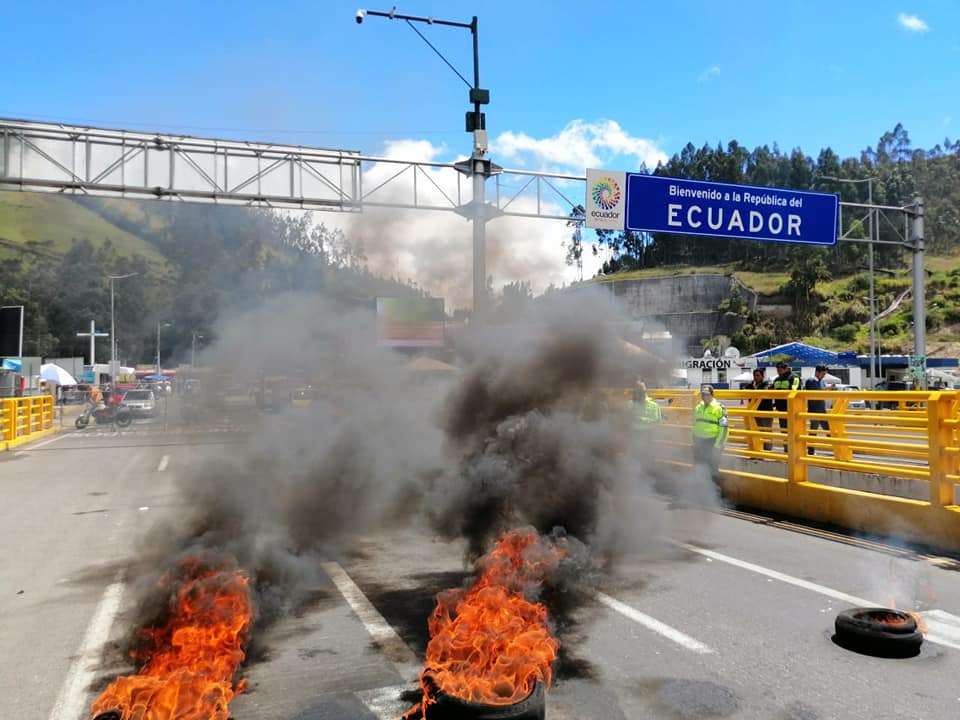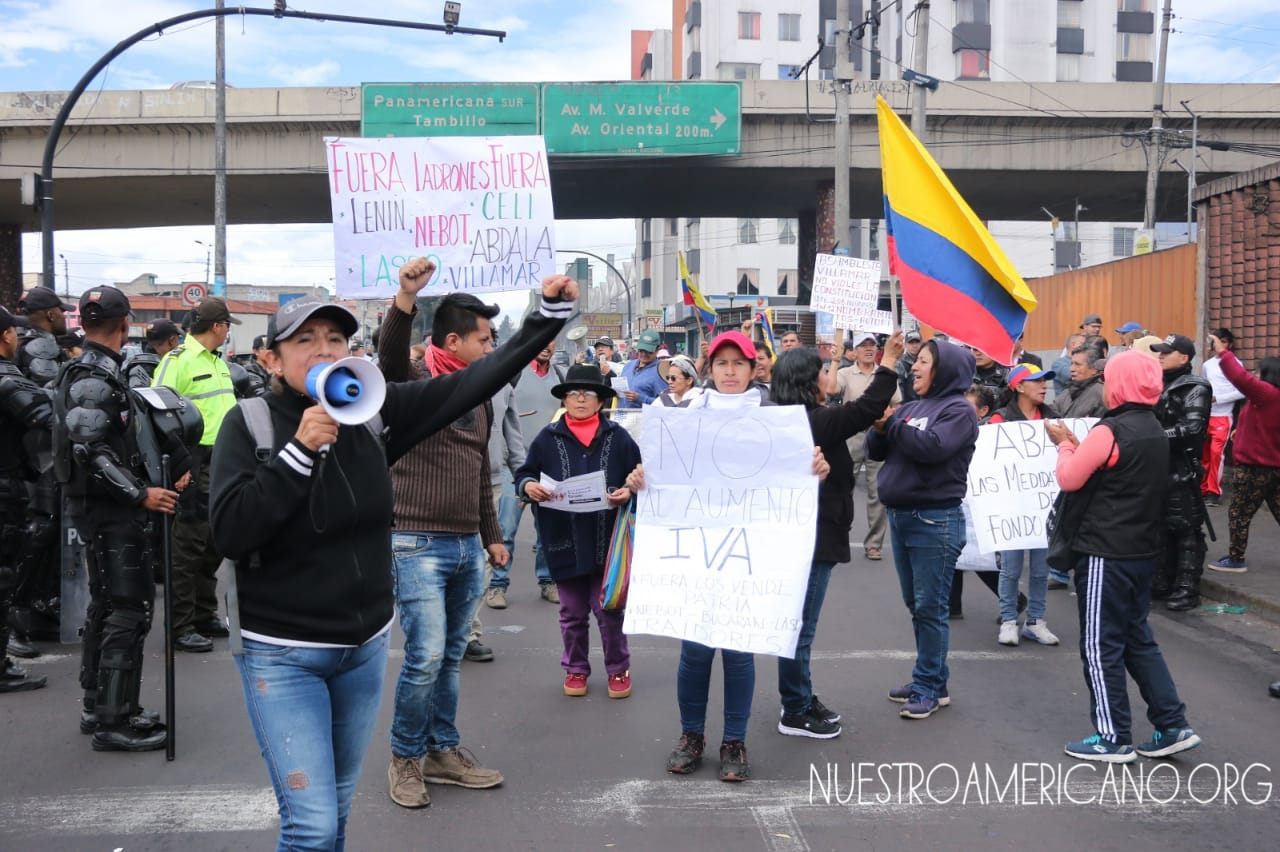On July 15, peasants and workers across sectors in Ecuador began a 5-day national strike against the neoliberal economic policies of the government of President Lenín Moreno and the government’s agreement with the International Monetary Fund (IMF). A large number of social movements, peasant and rural organizations and trade unions are participating in the strike such as the National Peasant Movement (FECAOL), the National Citizens Assembly (ANC) and others.
Ecuadorians across national territory are mobilizing in rejection of a set of austerity measures announced in the month of March, after the national government signed a USD 4.2 billion deal with the IMF. These measures include the privatization of public companies, mass dismissals in public sector employees, rise in the price of public services, discontinuation of thousands of health care and educational services have plunged around 500,000 people into poverty and have increased the social gap.
Peasant organizations participating in the strike have denounced that the current government’s land policy favors agribusiness and sidelines small farmers and peasant producers as well as Indigenous and Afro-descendant communities.
Other key demands are against the advance of the extractive sector in mining and oil extraction, as well as the potential handing over of the Galápagos Islands for the military interests of the United States.
Thousands of peasants, agricultural workers, Indigenous people, Afro-descendant people, healthcare workers, transport workers, small-scale business owners and self-employed workers have mobilized throughout the country to protest the policies of hunger and misery of Moreno’s administration. Several demonstrations were carried out in the capital Quito as well as in the provinces of Bolívar, Cotopaxi, El Oro, Esmeraldas, Guayas and Los Ríos. At least 8 important roads and highways were blocked across the country.

On the first day of the strike open threats from the Interior Minister María Paula Romo to Richard Intriago, the president of the National Peasant Movement FECAOL, one of the central organizers of the strike. In addition, Omar Delgado, leaders of the National Association of Transport Workers (ASOTRASET), was arbitrarily detained in a protest in the Llano Chico district of Quito.
The strike will continue until Friday July 19 and the road blockades and street mobilizations are expected to continue throughout. Social organizations have also called upon citizens to participate in the strike from their homes in cacerolazos (a kind of protest in which people make noise by banging pots, pans, and other utensils).
The hashtags #ParoNacional5Dias (#NationalStrike5Days), #ParoNacional (#NationalStrike) #TodxsALasCalles (#AllToTheStreets), #PeorGobiernoDeLaHistoria (#TheWorstGovernmentInHistory), etc. are trending on social networks urging people to join the strike.
Overall, Ecuadorians are expressing frustration and anger with a government that has betrayed its promises. Lenín Moreno campaigned for president on the basis that he would continue the process of change and transformation initiated by former president Rafael Correa. While Correa’s government was far from perfect, his focus on social policies and work to encourage Latin American integration without US interference was notable. Moreno, on the other hand, has leaned into all US pressure, evident with its application of neoliberal economic policies, the withdrawal from Latin American integration projects, support to the US-led coup in Venezuela and the handing over of whistle-blower Julian Assange to the government of the UK to facilitate his extradition to the US.
The protesting Ecuadorian peasants and workers in their fight against neoliberalism have received messages of solidarity from across Latin America.





